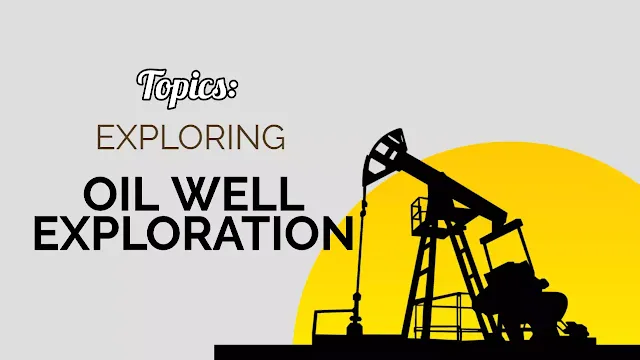Exploring Oil Well Operations: Types, Techniques, and Trends
The global economy heavily relies on the oil and gas industry, with oil well operations playing a pivotal role in meeting energy demands.
This article aims to provide insights into the fundamental aspects of oil well operations, offering valuable information on their types, techniques, and evolving trends.
Types of Oil Wells
Oil wells come in various forms, each tailored to specific geological conditions and production requirements. From shallow boreholes to deep exploratory wells, the industry boasts a diverse array of drilling configurations. Understanding the nuances of these types is essential for optimizing exploration and extraction efforts.
1. Shallow Boreholes:
These wells penetrate relatively shallow depths, typically targeting reservoirs situated close to the surface. Shallow boreholes are often utilized for accessing conventional oil reserves in easily accessible locations.
2. Deep Exploratory Wells:
Designed to reach extensive depths below the earth's surface, deep exploratory wells are essential for tapping into unconventional oil reservoirs, such as shale formations. These wells require advanced drilling technologies and expertise to navigate complex geological formations.
3. Liquid Hydrocarbon Wells:
Liquid hydrocarbon wells primarily target reservoirs containing oil in its liquid form. These wells play a crucial role in the extraction of crude oil, which serves as a cornerstone of the global energy supply chain.
A Complete Overview: Oil Well Types And Their Functions
Oil Well Operation Techniques
The successful operation of oil wells relies on a range of specialized techniques aimed at maximizing production efficiency and ensuring operational safety. From drilling to extraction and processing, each phase of the operation involves distinct methodologies and equipment.
1. Drilling Techniques:
Modern drilling techniques encompass a variety of methods, including rotary drilling, directional drilling, and hydraulic fracturing (fracking). These techniques enable operators to penetrate different types of rock formations and access hydrocarbon reserves effectively.
2. Extraction Methods:
Oil extraction techniques vary depending on factors such as reservoir characteristics and fluid properties. Common extraction methods include primary recovery, secondary recovery (such as water injection), and enhanced oil recovery (EOR) techniques like steam flooding and chemical injection.
3. Processing and Transportation:
Once extracted, crude oil undergoes processing to remove impurities and separate valuable components. Advanced refining techniques ensure the production of high-quality petroleum products ready for distribution via pipelines, tankers, or other means of transportation.
Read more: Oil And Gas Production - Stages, Equipment, And Cutting Edge Technology
Emerging Trends in Oil Well Operations
The oil and gas industry continually evolves in response to technological advancements, market dynamics, and environmental concerns. Several trends are shaping the future of oil well operations, influencing strategies and investment decisions across the sector.
1. Digitalization and Automation:
The integration of digital technologies and automation systems enhances operational efficiency and safety in oil well operations. Remote monitoring, predictive analytics, and autonomous drilling platforms streamline processes and reduce downtime.
2. Sustainable Practices:
With growing emphasis on environmental stewardship, oil companies are increasingly adopting sustainable practices in their operations. This includes reducing carbon emissions, minimizing water usage, and implementing eco-friendly drilling techniques.
3. Reservoir Management:
Advanced reservoir management techniques, such as reservoir simulation and data-driven modeling, enable operators to optimize production rates and maximize resource recovery from oil wells.
Conclusion
As the oil and gas industry continues to evolve, staying abreast of the latest developments in oil well operations is essential for industry stakeholders. By embracing technological innovations, adopting sustainable practices, and leveraging data-driven insights, companies can navigate the complexities of the energy landscape effectively.
Related References:
2. Brown, C. E., & White, L. F. (2019). "Sustainable Practices in Oil Well Operations: A Case Study of Environmental Impact Reduction." Environmental Science Quarterly, 22(4), 102-115.
3. Martinez, R., & Garcia, S. (2022). "Digitalization and Automation in Oil Well Operations: Enhancing Efficiency and Safety." International Journal of Energy Technology, 28(3), 321-335.
4. Rahman, M., & Khan, N. (2023). "Emerging Trends in Reservoir Management: Data-Driven Approaches for Optimizing Oil Recovery." Journal of Petroleum Geology, 30(1), 75-88.
5. Society of Petroleum Engineers. (2023). "Drilling and Completions Handbook." Richardson, TX: Society of Petroleum Engineers.

